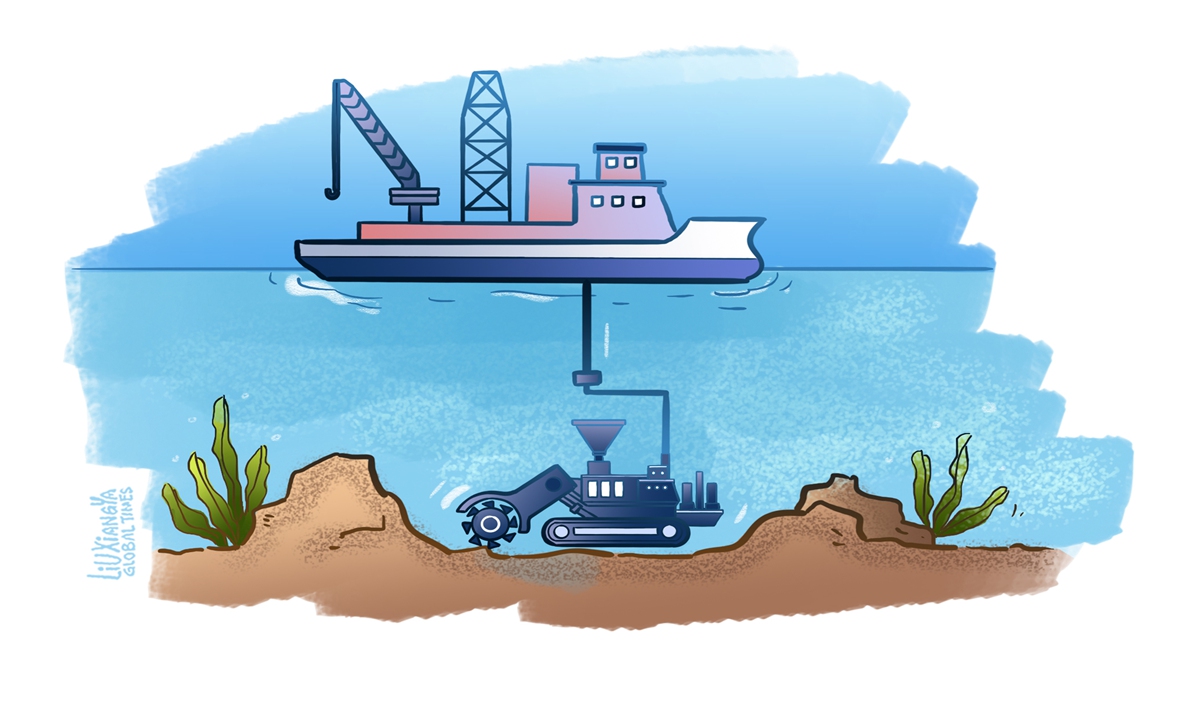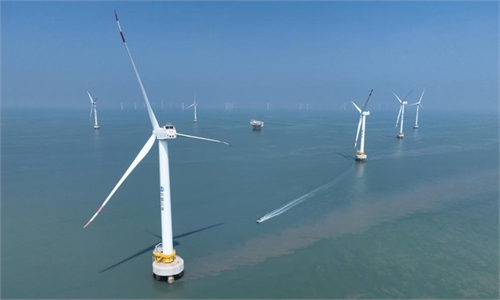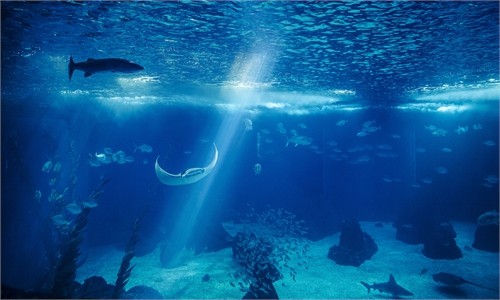
Illustration: Liu Xiangya/GT
Norway, which had planned to become one of the world's first countries to allow deep-sea mining, has suspended plans to give licenses for next year amid opposition from environmental groups and international institutions, AFP reported. This development indicates that fierce debates remain regarding deep-sea mining.When Norway's parliament gave approval for mining rights for tens of thousands of square kilometers of seabed in January, the EU and the UK expressed concerns about environmental damage and called for a temporary ban, the BBC reported.
The controversy reflects the complexity of deep-sea mining issues. It involves intricate geological environments, high extraction costs and potential environmental risks. On the other hand, the deep-sea mining industry has the potential to bring economic and social benefits to meet the rising demands of emerging sectors. It is essential to enhance international coordination to expand the benefits while preventing risks and damages.
The deep-sea seabed is home to minerals such as lithium, scandium and cobalt, all critical for green technologies. If extracted properly and environmental hazards are avoided, the exploitation of deep-sea resources will provide significant support for the development of clean energy technologies and industries, meeting the growing global demand for clean energy products.
However, some Western media has portrayed this as a new competitive field for the future in their reports. The BBC reported that "Oslo said it did not want to rely on China for such materials."
The new-energy industry and the deep-sea mining of critical mineral materials should not be viewed as a zero-sum game; instead, there should be an emphasis on strengthening global cooperation and coordination.
Global climate change is a common challenge, and developing green industries is in the shared interest of the world. Deep-sea mining is an emerging industry for countries around the world, and the technology for deep-sea mining is still at a relatively early stage, with uncertainties surrounding the commercialization of new technologies.
While deep-sea mining raises controversies related to commercialization, marine ecology and legal regulation, which does require a cautious approach, the potential opportunities it will bring should not be neglected. Although controversies exist, it does not mean that deep-sea mining cannot continue developing.
In this sense, deep-sea mining necessitates enhanced global coordination to prevent irreversible environmental damage and to promote sustainable development within the industry. The challenge lies in how nations can responsibly harness these resources while minimizing their impact on marine ecosystems. Advancing deep-sea mining will require collaborative efforts from governments, research institutions, environmental organizations and relevant enterprises across various nations.
As the authoritative organization for managing the international seabed area and its resources, the International Seabed Authority (ISA), came into existence in 1994, upon the entry into force of the United Nations Convention on the Law of the Sea (UNCLOS). China was one of the first countries to sign up to UNCLOS in 1982 and ratified the Convention in 1996, and was one of the earliest member states of the ISA.
China has been actively working with all parties to continue supporting the ISA's work, based on scientific principles and in accordance with relevant rules, to jointly promote the sustainable conduct of deep-sea activities and the effective protection of the deep-sea environment.
Global collaboration is needed to ensure that deep-sea mining activities adhere to best practices in environmental protection, sustainability and social responsibility. Only by doing so can demands for resources be balanced with ecological protection and achieve long-term sustainable development of the sector.
All parties need to strengthen scientific research to advance the development of deep-sea mining technologies and study ways to prevent and reduce damage to the marine environment, including the formulation of management standards. Additionally, the international community should jointly develop and implement deep-sea mining regulations and prioritize green technologies and sustainable development.
The author is a reporter with the Global Times. bizopinion@globaltimes.com.cn



